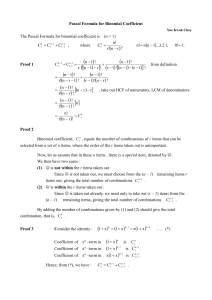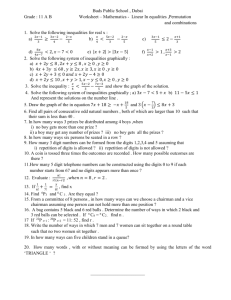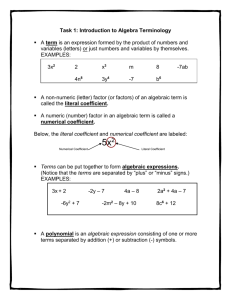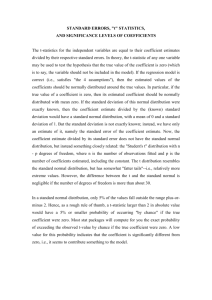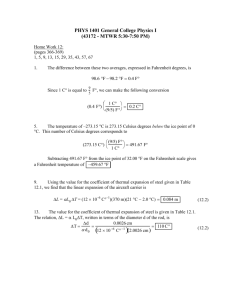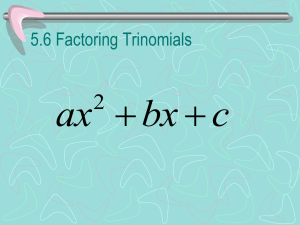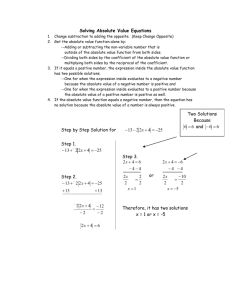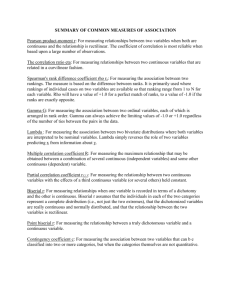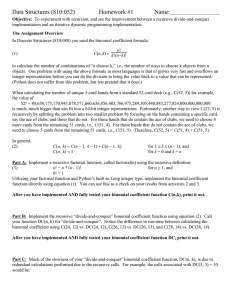alg2_march28_the answers
advertisement
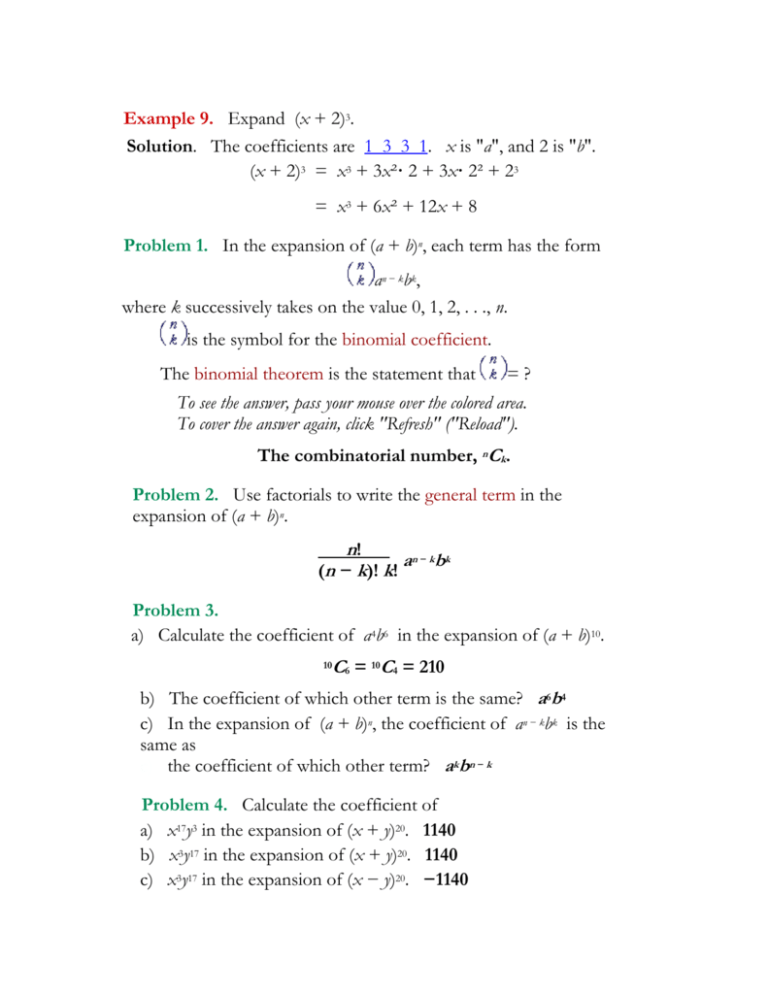
Example 9. Expand (x + 2)3. Solution. The coefficients are 1 3 3 1. x is "a", and 2 is "b". (x + 2)3 = x3 + 3x²· 2 + 3x· 2² + 23 = x3 + 6x² + 12x + 8 Problem 1. In the expansion of (a + b)n, each term has the form an − kbk, where k successively takes on the value 0, 1, 2, . . ., n. is the symbol for the binomial coefficient. The binomial theorem is the statement that =? To see the answer, pass your mouse over the colored area. To cover the answer again, click "Refresh" ("Reload"). The combinatorial number, nCk. Problem 2. Use factorials to write the general term in the expansion of (a + b)n. n! a n − k bk (n − k)! k! Problem 3. a) Calculate the coefficient of a4b6 in the expansion of (a + b)10. C6 = 10C4 = 210 10 b) The coefficient of which other term is the same? a6b4 c) In the expansion of (a + b)n, the coefficient of an − kbk is the same as c) the coefficient of which other term? akbn − k Problem 4. Calculate the coefficient of a) x17y3 in the expansion of (x + y)20. 1140 b) x3y17 in the expansion of (x + y)20. 1140 c) x3y17 in the expansion of (x − y)20. −1140 d) x2y18 in the expansion of (x − y)20. 190 e) x5y5 in the expansion of (x − y)10. −252 f) x10 in the expansion of (x − 1)15. −3003 Problem 5. Write the first four terms of (x + h)n. Do not use factorials. (x + h)n = xn + nxn−1h + n(n − 1) 1· 2 xn−2h2 + n(n − 1)(n − 2) 1· 2· 3 xn−3h3 Problem 6. Compute the first four terms of each of the following. a) (a + b)15 a15 + 15a14b + 105a13b² + 455a12b3 b) (x − 1)20 x20 − 20x19 + 190x18 − 1140x17 Problem 7. Consider the expansion of (x + b)30. a) What is the exponent of b in the 1st term? 0 b) What is the exponent of b in the 3rd term? 2 c) In the 25th term? 24 d) In the kth term? k − 1 e) Write the fourth term, with its coefficient. 4,060x27b3 Problem 8. Calculate each of the following. a) The third term of (a + b)11. 55a9b² b) The fifth term of (x − y)7. 35x3y4 c) The tenth term of (x − 1)12. −220x3 1 18 −14 d) The fifteenth term of (1 + ) . 3060x x 1 10 4 e) The fourth term of (x − ) . −120x x Problem 9. Use Pascal's triangle to expand the following. a) (a + b)3 = a3 + 3a²b + 3ab² + b3 b) (a − b)3 = a3 − 3a²b + 3ab² − b3 c) (x + y)4 = x4 + 4x3y + 6x²y² + 4xy3 + y4 d) (x − y)4 = x4 − 4x3y + 6x²y² − 4xy3 + y4 e) (x − 1)5 = x5 − 5x4 + 10x3 − 10x² + 5x − 1 f) (x + 2)5 = x5 + 10x4 + 40x3 + 80x² + 80x + 32 g) (2x − 1)3 = 8x3 − 12x² + 6x − 1 h) (1 − xy)7 = 1 − 7xy + 21x²y² − 35x3y3 + 35x4y4 − 21x5y5 + 7x6y6 − x7y7 In the following Topic we will give a proof of the binomial theorem.
